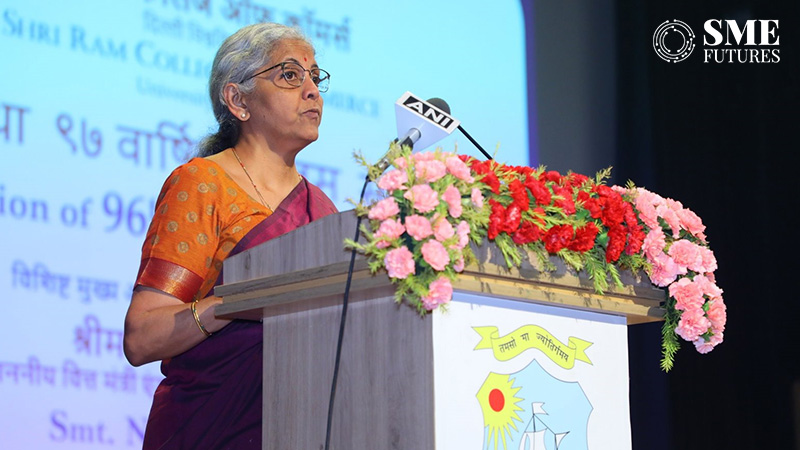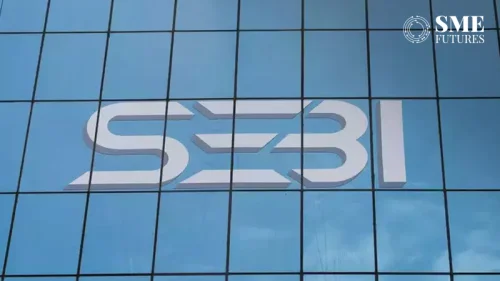Finance Minister Nirmala Sitharaman on Thursday said that the Nudge Theory, given by economist Richard Thaler, has been used by PM Modi-led government in various initiatives to make a difference in the economy.
The theory is being used as a tool to promote economic activity tailored to India’s requirements, she said while addressing the annual day function of Shri Ram College of Commerce (SRCC). Examples of its usage can be seen in the ‘Beti Bachao, Beti Padhao’ scheme which has improved the sex ratio, Sitharaman explained.
FM also referred to the Stand Up India scheme under which subsidised loans to women are given, and also to the Prime Minister’s endeavour urging people to give up their LPG cylinder subsidy, to underline her point.
Nudge theory is a concept in behavioural economics, decision-making, behavioural policy, social psychology, consumer behaviour, and related behavioural sciences that proposes adaptive designs of the decision environment (choice architecture) as ways to influence the behaviour and decision-making of groups or individuals.
Sitharaman further in her address, said that one needs governments that are futuristic, ready for reforms and provide consistency for businesses to grow. “That’s exactly the difference when it comes to the kind of decisions the Modi government has taken and which didn’t happen earlier during previous governments,” she added.
She added that the Prime Minister does not believe in the principle of “Entitlement”. “He strongly believes in ‘Empowering’ people, giving them the choice of what they want to do, spending on fundamental things that give them the power to decide where they want to be, and providing them with access to resources and essential facilities like housing, roads, drinking water, toilets, etc.,” she said.
Referring to the country’s economic growth, FM said, “There are a lot of people who say that it’s a given that India will become the world’s third-largest economy and that we don’t need to take credit for it. It’s for the people of India who should get the credit and feel proud about it. It’s the people of India who moved the Indian economy from the 10th position to fifth and will take it to the third position as well.”
“To say that it can be a fait accompli and that there’s no effort of the people is to undermine the efforts of our entrepreneurs, farmers and other sections that are pushing India upwards,” she added.
Referring to foreign investment, Sitharaman said that the total foreign direct investment (FDI) inflows in the country in the last 23 years (April 2000-March 2023) stood at US$ 919 billion, whereas, the total FDI inflow received in the last nine years (April 2014- March 2023) were US$ 595.25 billion, which amounts to nearly 65 per cent of the total FDI inflow in the last 23 years. “Only political stability, policy consistency and decisiveness will guarantee India’s economic progress,” she pointed out.











